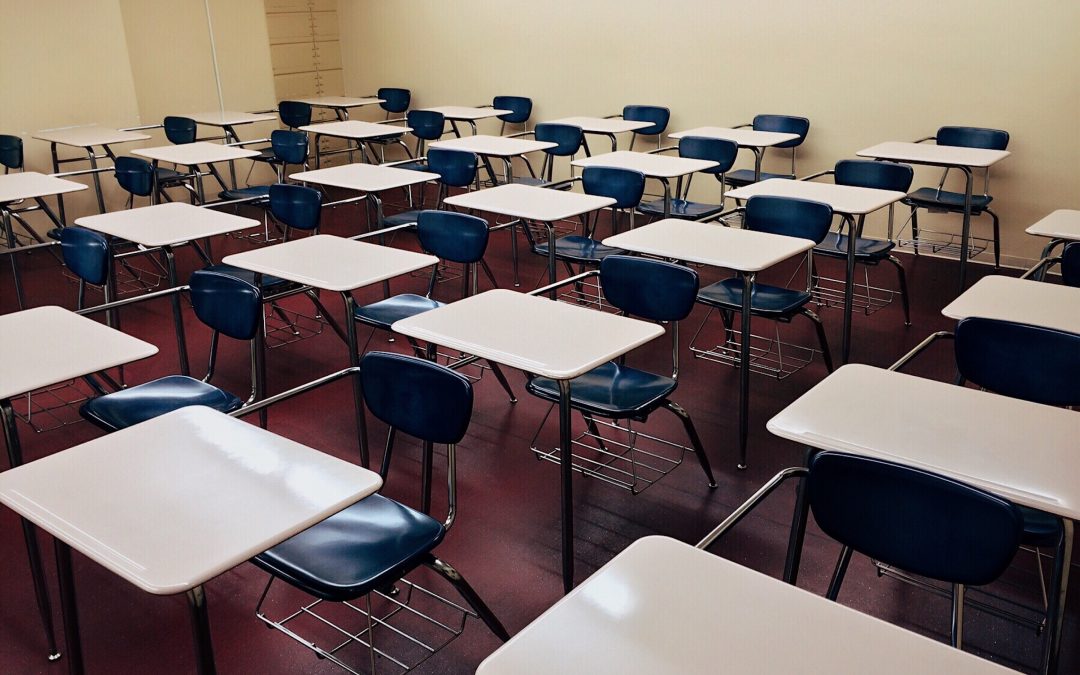By Shay Stinson
Are your children returning to their school or will you be homeschooling? In the next two months, when school usually reopens in the U.S., we’ll be seeing what parents have decided, how schools are managing, and how the pandemic is progressing or whether it’ll be on the decline. After experiencing the first half of 2020, we are learning that life, going forward, may be painstakingly different. In March 2020, the global pandemic of COVID-19 caused schools to close and brought an abrupt end to the 2019-2020 school year. Many parents were left trying to figure out homeschooling, virtual learning, and beginning, what seems to now feel like, an endless summer.
Endless summer is what most kids dream of as they muddle through school. But quarantine and life at home this year has been hard on both parents and their children. Although many parents would love to send their kids back to school for various reasons like having a little more peace, there are many variables to consider due to coronavirus. Some families depend on children being in school during the day for various reasons like their parents or guardians having to go to work and for their kids to receive at least two nutritious meals during the day. If that’s taken away, many children will be left vulnerable. Even some children would like to be back at school for various reasons such as socializing with their friends and peers again. However, many families are facing a challenge to figure out what school for their kids will look like this year and maybe even going forward in the future.
Should students go back to physical school where there is some risk involved or should they stay home and do distance learning, making the parents their new teacher? While we are hoping for the best of outcomes, let’s consider some of the main concerns that parents may have for home or virtual learning and how we can address them.

Traditional school provides the opportunity to learn social skills and character development among peers. | Photo by CDC on Unsplash.
Work
Most parents work or, at least, have a job that may require their full attention throughout the day, as well as their physical presence. So, how can parents take an active role in their child’s daily learning while also maintaining being employed? Seraaj Family Homes, Inc. is primarily a remote workplace and allows more flexibility for its employees and their child-care needs. Not all workplaces have this benefit.
Deciding on whether to have kids attend school remotely or at a physical school may affect how parents are able to earn a living. Even with brick-and-mortar school as a choice, workplaces may have to be more flexible with parents because the stability of this pandemic is unstable. According to a Flex Jobs article published in February of 2020, pre-COVID shutdowns, remote work has seen a steady increase since 2015. This growing trend may work well for some parents that aren’t able to switch or sacrifice jobs.
Homeschool
I’ve been hearing from some parents in my network that the idea of having to homeschool is overwhelming. Tyeshia Amerson, a pharmacy tech who lives in Missouri, is worried that home school may be hard on her and her three children, who range from preschool to middle school age. Amerson says she’s “not equipped for that” (homeschooling). However, she is also concerned that the physical discomfort of wearing a mask may be difficult for children to maintain during a school day. This is not an uncommon concern for many parents. Plus, homeschooling is not a hands-off task. Homeschooling involves developing and teaching lessons and monitoring learning. Parents who home school basically become the teacher, which is a huge undertaking that comes with many pros and cons.
Safety
The most often expressed concern for many parents is the safety of their children. School boards across the country are scrambling to change a traditional school environment to a sterile and safe zone where children and families feel like the most precautionary measures are being taken. But is that enough?
“L.C.,” a teacher from Alabama who’d like to stay anonymous, says, “It’s not enough!” Their family is choosing to homeschool their two youngest children and decisions are still being made for their oldest child, who is in high school. “L.C.” has trust in the school system’s intentions to stick to all the necessary precautions. However, one of their children has severe asthma, so it’s too risky to take a chance.
“My job requires me to be front–and–center,” L.C. says. “But I will be able to do things to protect myself that children can’t. I can’t control what their schoolmates’ families are doing to protect themselves. So, because of that, my babies will be in the house!”
Pros vs. Cons

Social distancing is a challenge for maintaining friendships for children. | Photo by Parker Gibbons on Unsplash.
The fact is, some families have a choice on whether to homeschool or not because they have the flexibility, funds, and/or other significant resources and options. Some families will have to decide if distance learning is a viable path to maintaining educational success. Some families don’t have much of a choice in the matter due to variables that may weigh heavily on the outcomes of these choices.
After weighing the facts based on the needs of your families, you’ll be able to make a decision more easily of whether you’ll be homeschooling or sending your kids back to school. Most school boards have issued written statements about their plans to re-open, provided there is no call for another shutdown. Educating yourself on all the facts will empower your family to make good choices. Building a family support system for this important choice may also help to ease some stress. One way or the other, summer has to end. So, let’s enjoy this break from school so we’re ready to tackle the challenges of the next school term.


